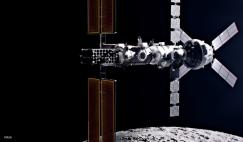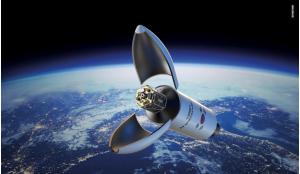Projection and Stability of the Orbital Debris Environment in the Light of Planned Mega-Constellation Deployments special plenary session will be held during the 2016 International Astronautical Congress, on Thursday, September 29, from 13:30 to 14:30.
About two years ago, OneWeb Ltd. (UK) and SpaceX (USA) revealed their plans to deploy large low-Earth orbit satellite constellations. Both constellations are to be deployed at high-inclination orbits. The OneWeb constellation will consist of 720 satellites operating at 1200 km altitude and in 18 different orbit planes and will provide global high-speed communication. The SpaceX constellation will consist of 4000 satellites, operate at 1100 km altitude and provide high-speed internet communication.
The IAC 2016 Plenary event will host a panel of experts that will discuss possible effects that large constellation deployment may have on orbital debris environment. The panel will also delve into potential risks for space missions during the operation and disposal of large constellations and explore the legal aspects of such deployments from the point of view of current space debris mitigation guidelines and applicable laws.
The plenary session will be moderated by Professor Heiner Klinkrad, former Head of ESA Space Debris Office and currently an Honorary Professor at the Institute of Space Systems of the Technical University of Braunschweig. The panelists will include Dr. J.-C. Liou, NASA Chief Scientist for Orbital Debris; Dr. Holger Krag, Head of ESA Space Debris Office; Mr. Michael Lindsay, OneWeb Mission System Engineering and Analysis Lead; and Professor Stephan Hobe, Head of Institute of Air- and Space-Law at the University of Cologne.
Registration to the event and the 2016 International Astronautical Congress is still open.












